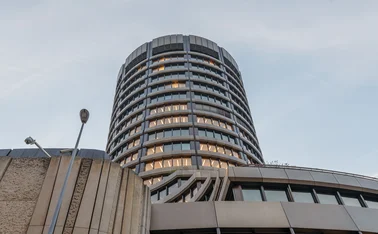
High-frequency traders impose costs on others – BIS paper
Study of dark pools finds HFTs almost never provide liquidity, while raising the cost for all

High-frequency trading firms (HFTs) take advantage of “stale” prices to make nearly risk-free profits, while imposing costs on other market participants, research published by the Bank for International Settlements finds.
Sharks in the dark: quantifying HFT dark pool latency arbitrage uses regulatory data to assess the impact of “latency arbitrage” – in which firms race to respond to a price signal – on liquidity. The paper focuses on dark pools, private trading venues with no pre-trade
Only users who have a paid subscription or are part of a corporate subscription are able to print or copy content.
To access these options, along with all other subscription benefits, please contact info@centralbanking.com or view our subscription options here: http://subscriptions.centralbanking.com/subscribe
You are currently unable to print this content. Please contact info@centralbanking.com to find out more.
You are currently unable to copy this content. Please contact info@centralbanking.com to find out more.
Copyright Infopro Digital Limited. All rights reserved.
You may share this content using our article tools. Printing this content is for the sole use of the Authorised User (named subscriber), as outlined in our terms and conditions - https://www.infopro-insight.com/terms-conditions/insight-subscriptions/
If you would like to purchase additional rights please email info@centralbanking.com
Copyright Infopro Digital Limited. All rights reserved.
You may share this content using our article tools. Copying this content is for the sole use of the Authorised User (named subscriber), as outlined in our terms and conditions - https://www.infopro-insight.com/terms-conditions/insight-subscriptions/
If you would like to purchase additional rights please email info@centralbanking.com
Most read
- ECB staff speak out against changes to internal survey
- Central bank of the year: Central Bank of Brazil
- BIS’s Zhang Tao on why Asian central banks favour a broader policy mix







